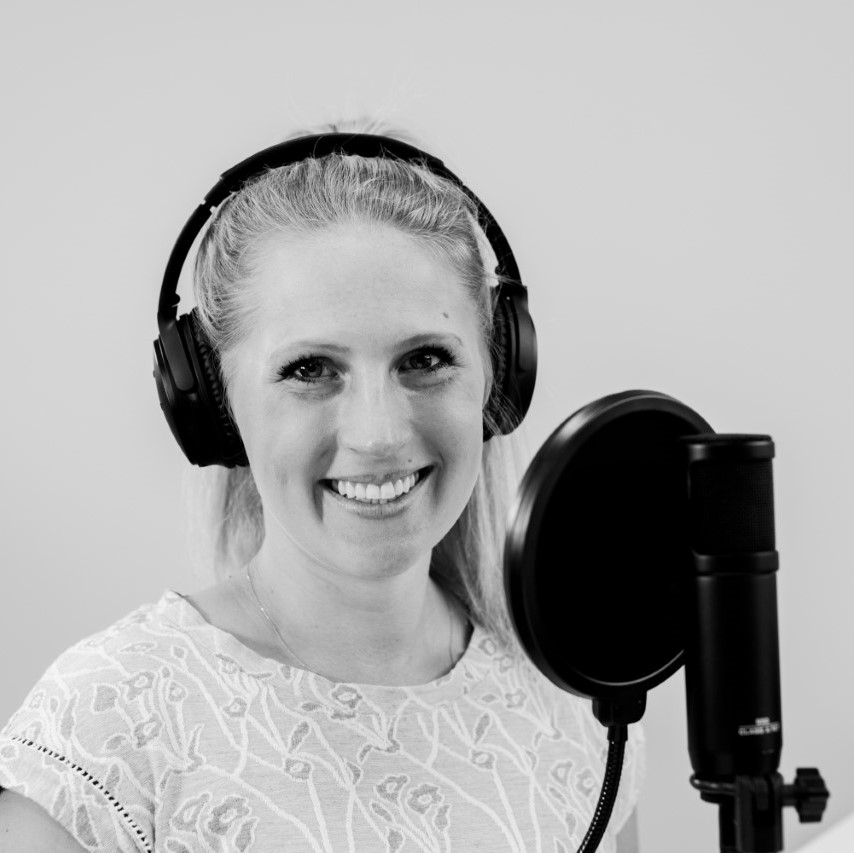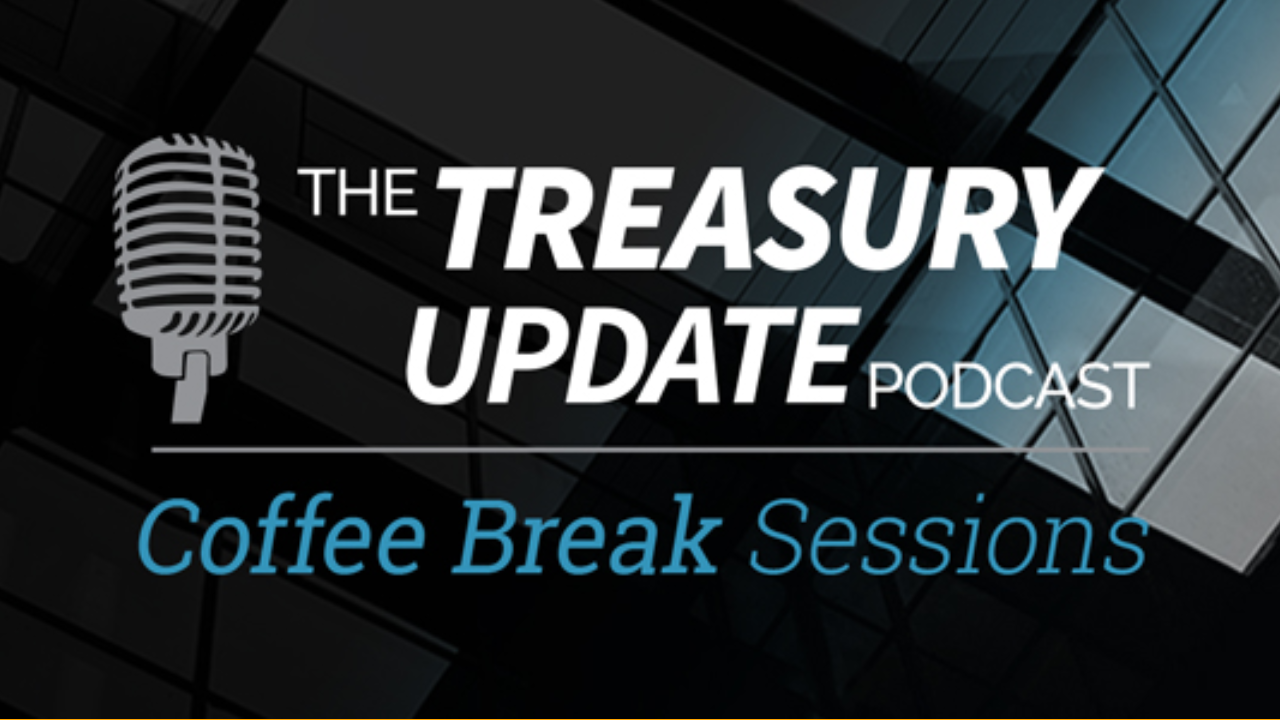
Session 13
What is a Business Continuity Plan?
What is a business continuity plan? Coffee Break Session Host Alexa Cook joins Senior Consultant Melody Hart to cover this topic in a bite-size conversation. They define what it is and why it’s important to have them in a number of scenarios. Listen in and learn a little bit about business continuity plans.
Host:
Alexa Cook, Strategic Treasurer


Speaker:
Melody Hart, Strategic Treasurer


Episode Transcription - CBS Episode 13: What is a Business Continuity Plan?
Alexa:
Hey guys, welcome to The Treasury Update podcast, Coffee Break Session, the show where we cover foundational treasury topics and questions in about the same amount of time it takes you to drink your coffee. I am joined today, again, with my co-consultant, Melody Hart. Welcome, Melody.
Melody Hart:
Hi Alexa.
Alexa:
Today we’re going to be covering what is a business continuity plan, and again, I think Melody is a really great person to speak to this. She’s got a good amount of experience in this area, and we’re actually going to change up the way that we’re doing today’s podcast and I’m just going to let Melody dive into some of her personal experience and tell a story around it, and then as she’s telling that story, we’ll maybe pick apart some of the pieces of a business continuity plan and some of the buzzwords that might not be familiar to everybody. Thanks again for joining us, Melody, and if you want to maybe get started with, high level, what a business continuity plan is, and then maybe just jump right into what your experience was.
Melody Hart:
Well, business continuity plan is done in order to ensure that, when there’s a disruption, that you can continue to meet your operational needs, although it can mean more than operational needs. Usually people think of it as operational needs, but it can cover more. It covers things like what happens if your TMS is down, your treasury management system is down? What happens if your payment system is down? You should take a lot of other things into consideration as well, and I think that with COVID, some people have had to scramble a bit, because if it happens that in your department a key department member has COVID, have you really developed sufficient cross training? Are your procedures fully up to date so that another employee can perform that function? Or what happens if something happens in your company that causes a disruption on your borrowing capacity? These are all things that have to be taken into consideration for a thorough business continuity plan.
Melody Hart:
I’ll give you an example from when I worked at a company called Fleming, which is no longer in existence at this point. I was assistant treasurer, this is a number of years ago. Fleming was a very large grocery retailer and wholesaler. They had a lawsuit against them. Dave’s Supermarkets in Texas sued Fleming, a food distributor, which they were based in Oklahoma City, in 1993. They were contending that they had paid more than it should have for goods between the years of, like, ’88, ’89, and early ’90s. As a result, Dave’s said it couldn’t compete with other supermarkets and so it suffered financial debt damages, so they sued. Now in 1995, Fleming was not an investment grade company, not by any long shot.
Alexa:
Can I pause there and ask what it means to be an investment grade company?
Melody Hart:
Sure, sure. Public companies, and some private companies could, but mostly it’s public companies, are given ratings by rating agencies like Standard & Poor’s or Moody’s and Fitch. They perform extensive analysis and have long conversations with senior management to get a full understanding of the business credit worthiness and of the risks, and then they assign a ratings. Ratings, the highest rating would be AAA, and it can go way down and it goes to AA and then A and then BBB, and so forth on down. They may also give you an outlook prior to a ratings change. Let’s say they were not yet rated, say your company needed to be downgraded, but thought there was a good chance, they might put on a negative outlook on the company so that investors are aware that there are some unsettled negative aspects of the business that could result in a future downgrade.
Alexa:
Okay, so it’s basically a third party rating on credit worthiness that’s used by investors. Is that for only public companies or is that for private companies as well?
Melody Hart:
A private company can get a rating, it’s an election. A public company generally always has a rating, but private companies can if they wish.
Alexa:
Okay. Sorry to take you from your story. As you were saying, Fleming was not investment grade, correct?
Melody Hart:
No, they were not. As they approached the trial date, they had done some research and investigation and some mock trials, and they were certain they would win the case. But, I knew also that if they did not win the case, that they could freeze our assets in Texas, which were considerable, if we couldn’t bond quickly enough. I decided that I wasn’t going to take that advice that they’re going to win. This was in the first half of 1995 that they went to trial. Ahead of that trial, I decided to be cautious and planned for it. I calculated out how much cash would be needed to get through until our cashflow increased. The grocery business is very seasonal. January until Easter is very slow, Easter is the start of the pickup. When you get to Memorial Day, purchasing picks up even more and it goes like that through the end of the year until the holidays over.
Melody Hart:
I decided to borrow enough money to last until late summer, and I began making draws little at a time each day. I didn’t want to get the banks worried by my making some large draws suddenly, so I just drew a little each day. When the time came, Fleming did lose and they had a $211 million judgment against them. I went through the unique opportunity of a challenge. We had a MAC declared on us by the banks. MAC is a material adverse change, most debt agreements have it. It means that if something changes materially, they can halt your ability to borrow. In some cases, they can even accelerate it, accelerate the repayment. The MAC was declared and we could not borrow any more than we’d already borrowed. We could roll what we had borrowed, but we could not borrow more. We had to work to get bonded.
Melody Hart:
Eventually it turned where we had the cash coming in, but I kept the outstanding debt. In June, 1996, a Texas judge set aside the earlier judgment, the $211 million, and granted the company a new trial after it disclosed that a financial relationship existed between the original trial judge and the affiliates of Dave’s. Therefore, the judge had to recuse himself. Fleming ultimately settled the case after that for $11 million. But, had I not planned for that possibility, Fleming would not have been able to meet its obligations and would have been bankrupt at that time. That’s all part, this is just a real life experience of planning ahead for something. Obviously, COVID virus is not something we easily plan ahead for, but planning could have involved also looking at what happens if people are out. It needs to encompass, not just whether your TMS is working, not whether your bank is reporting, you have to get that in there, but what happens if you can’t borrow, and what steps would you take?
Alexa:
I’m just going to recap that. At a high level, a business continuity plan is done in advance so that, if there is a disruption to any operations or functionality, that the business can continue. Your example of showed almost a backup plan or a plan B just in case that that court case wasn’t won, even though they were fairly confident that they would have a favorable outcome in that court case. Then, I think you gave us some other examples, like cross-training across personnel in the event that COVID is taking someone out of the office for a bit of time.
Alexa:
We also talked about what it means to be an investment grade company, and that was just a third party analysis on company’s credit worthiness, and those are always done on public companies and then sometimes on private companies. Thanks, Melody, for joining us today on The Treasury Update podcast, Coffee Break Session. I hope everybody now understands what a business continuity plan is and has a little bit of color to why those are important in a number of different scenarios. Thank you, Melody, again, for joining us today.
Melody Hart:
Yeah, I always give one final thought, and that’s, when you’re negotiating your credit agreements, look very closely at your MAC language.
Alexa:
Okay.
Melody Hart:
Make sure it’s not too broad. Make it as narrow as possible so that you’re less likely to get a MAC declared.
Alexa:
Got it. Thanks, Melody. To all our listeners, please feel free to tune in every first and third Thursday of the month for a new Coffee Break Session. Of course, if you have any comments, questions, or feedback, we’re always looking forward to hearing from you guys at podcast@strategictreasurer.com. Thanks everyone, bye.
OUTRO:
This podcast is provided for informational purposes only, and statements made by Strategic Treasurer, LLC on this podcast are not intended as legal, business, consulting, or tax advice. For more information, visit and bookmark strategictreasurer.com.
Related Resources
Want access to more great content? Subscribe to Strategic Treasurer on YouTube!
A part of the Treasury Update Podcast, Coffee Break Sessions are 6-12 minute bite-size episodes covering foundational topics and core treasury issues in about the same amount of time it takes you to drink your coffee. The show episodes are released every first and third Thursday of the month with Special Host and Treasury Consultant Alexa Cook of Strategic Treasurer.




